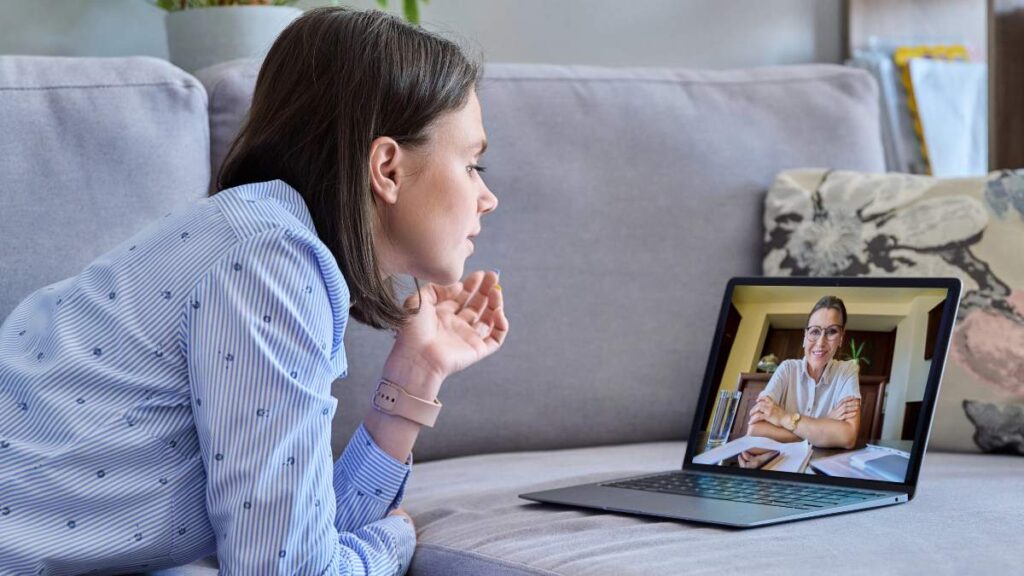
Online therapy is a telehealth service that connects people with licensed therapists through video, phone, or text. It can help with various mental health issues, such as anxiety, depression, stress, and more.
But how do help-seekers choose the best online counseling platform? What are the benefits and drawbacks of online therapy? How much does it cost, and is it covered by insurance?
This article answers these questions and reviews the best online counseling services like Online-Therapy.com so that you can make the best choice.
| Rank | Site | Award |
| 1 | Online-Therapy.com | Best online therapy platform overall |
| 2 | BetterHelp | Largest online counseling platform |
| 3 | Teen Counseling | Best for teen therapy |
| 4 | ReGain | Online counseling for couples |
| 5 | Calmerry | Affordable online counseling |
| 6 | Talkspace | Online counseling with flexible plans |
| 7 | OurRitual | Relationship and therapy app |
The platforms on our list provide access to licensed professionals from the comfort of your home, with different services and features to suit various needs. Here’s a closer look at each option.
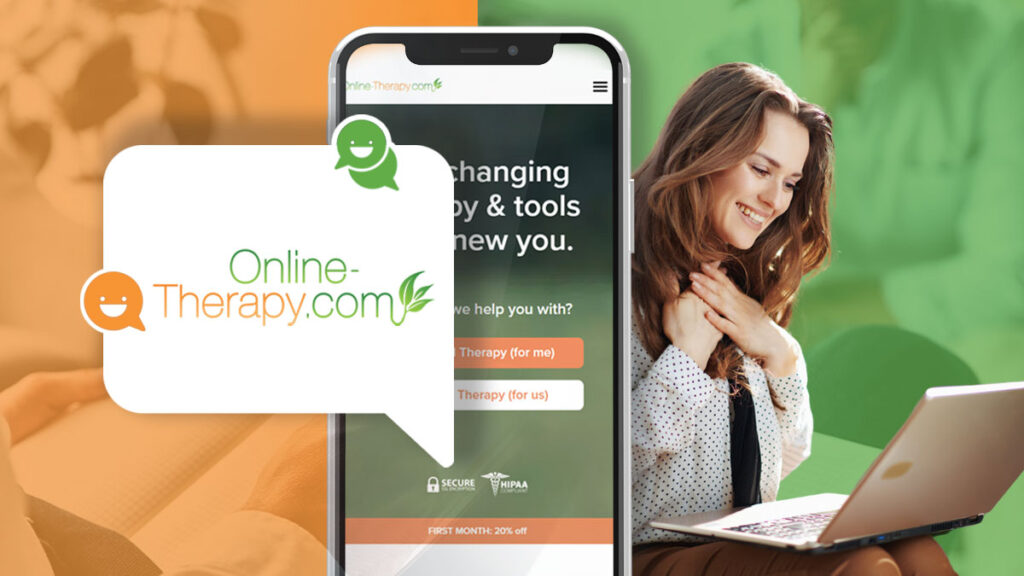
Founded in 2009 by Carl Nordström, Online-Therapy.com is a pioneering platform that has revolutionized mental health care. As the world’s first online therapy service, they make high-quality, professional therapy accessible, affordable, and stigma-free for people everywhere.
Online-Therapy.com is one of the best online therapy platforms for anyone looking for an affordable and convenient way to access CBT-based therapy.
Patients can choose from different subscription plans that include unlimited messaging and live sessions with a licensed therapist. They also get access to an online CBT program that consists of 8 learning sections and 25 interactive worksheets.
>>Join Online-Therapy.com here
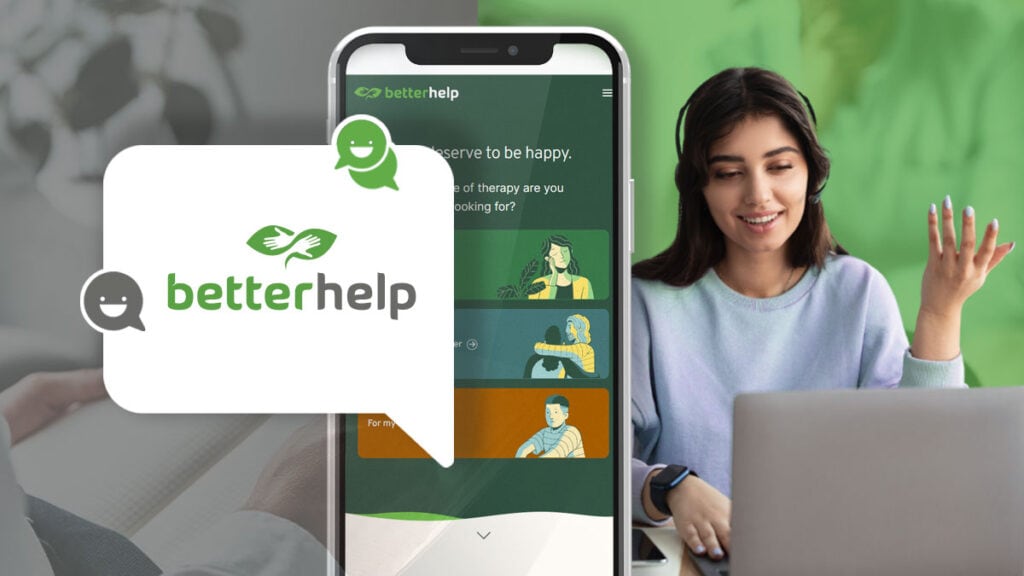
Alon Matas and Danny Bragonier established BetterHelp in 2013 with a simple goal in mind: break down the traditional barriers to therapy through an easy-to-use platform that connects people with qualified therapists worldwide.
BetterHelp shines for its unique blend of accessibility and flexibility. The platform gives you the freedom to choose your communication style, offering unlimited messaging and live sessions via video, phone, or chat.
Its on-demand approach, combined with a large network of licensed professionals and the ability to switch therapists easily, removes common barriers to therapy online.
In addition, patients looking for the best online therapy for depression can find a therapist who specializes in that area, as well as others like anxiety, trauma, or relationship problems.
>>Get the best online counseling deals with BetterHelp
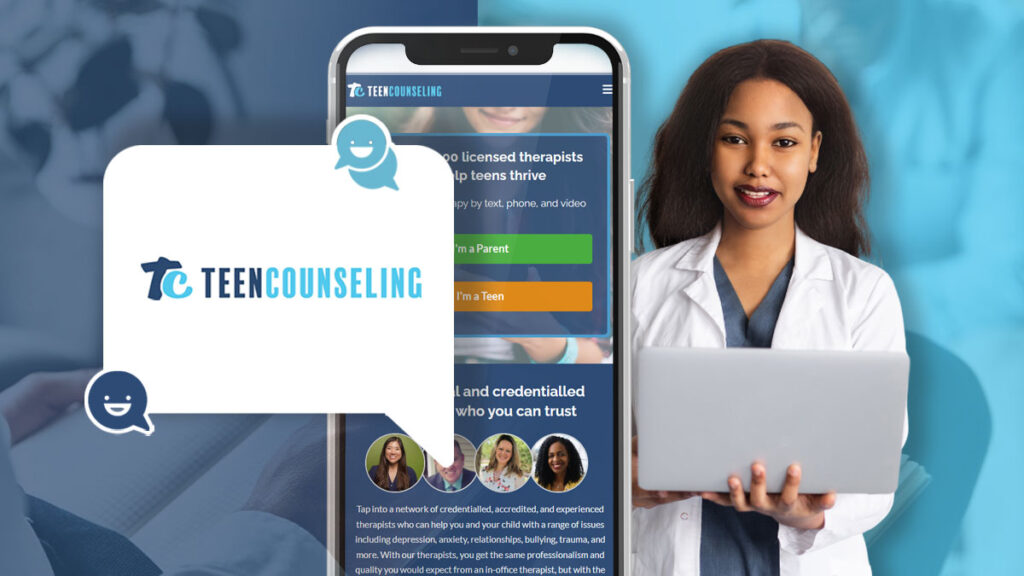
TeenCounseling.com started as a sister site to BetterHelp in 2015. It was created to offer affordable and accessible online mental health support for teenagers. The platform connects teens aged 13-19 with licensed therapists who have specific expertise in helping young people.
With a network of over 10,000 credentialed and experienced therapists, TeenCounseling specializes in helping teenagers aged 13-19 with anxiety, depression, bullying, eating disorders, and trauma.
Teens can connect with a therapist in four flexible ways: unlimited messaging, and live sessions via video, phone, or real-time chat.
Another key unique feature is privacy: parents or guardians cannot read the messages exchanged between the teen and their therapist.
>>Find a suitable teen therapist on TeenCounseling.com
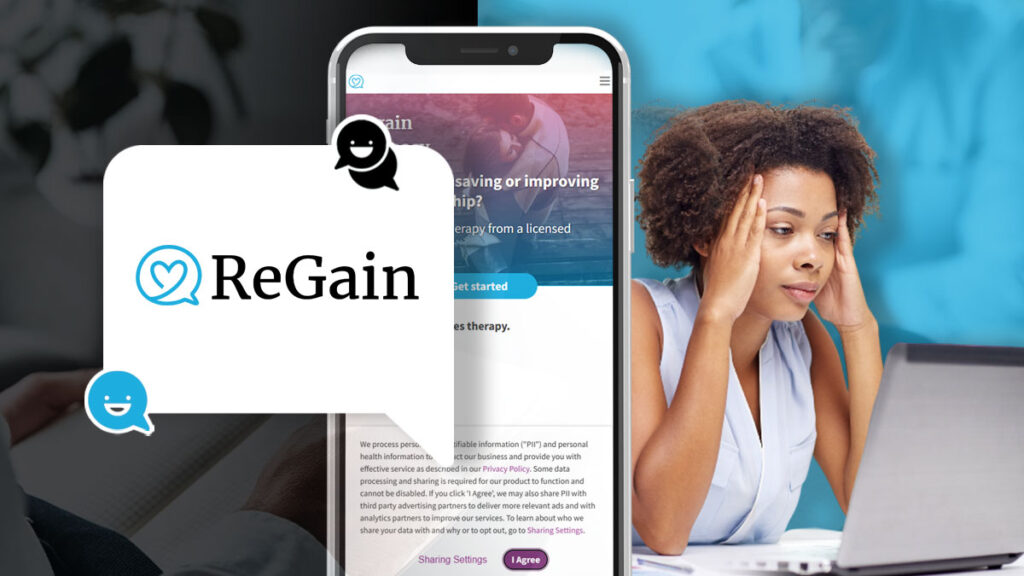
Established in 2016 and operated by BetterHelp, ReGain.us is an online therapy platform that primarily focuses on relationship counseling for couples and individuals.
ReGain.us offers unique flexibility for relationship therapy. You can start therapy by yourself and invite your partner to join later, allowing you to begin the process on your terms.
The service can be accessed from any computer or smartphone, making it possible for both partners to attend sessions even if they are in different locations.
On top of that, all therapists on the platform are highly qualified, holding relevant academic degrees and at least three years of experience, and are fully credentialed by their professional organizations.
>>Experience the best online therapy with ReGain.us
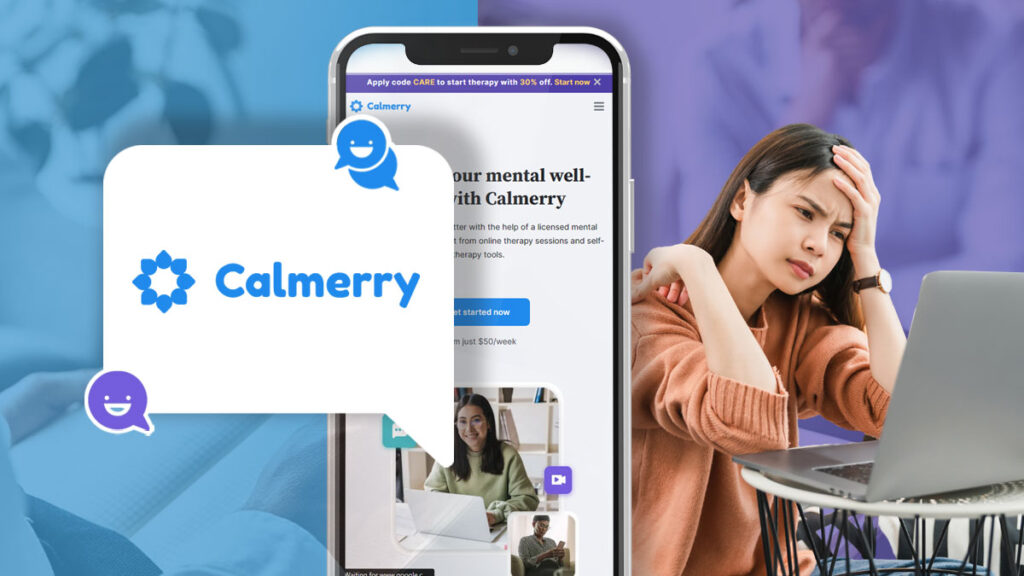
Alex Vitchenko started Calmerry in 2020 during the COVID-19 pandemic. The online therapy platform was designed to meet the rising demand for accessible mental health support.
Calmerry makes therapy accessible through affordable subscription plans and a free self-help toolbox that includes tests, assessments, and a content library. And with a quick one-hour matching process, you can start your sessions within just one to two days.
Calmerry also offers robust HIPAA confidentiality protocols and data encryption so you can rest assured your information is kept completely safe.
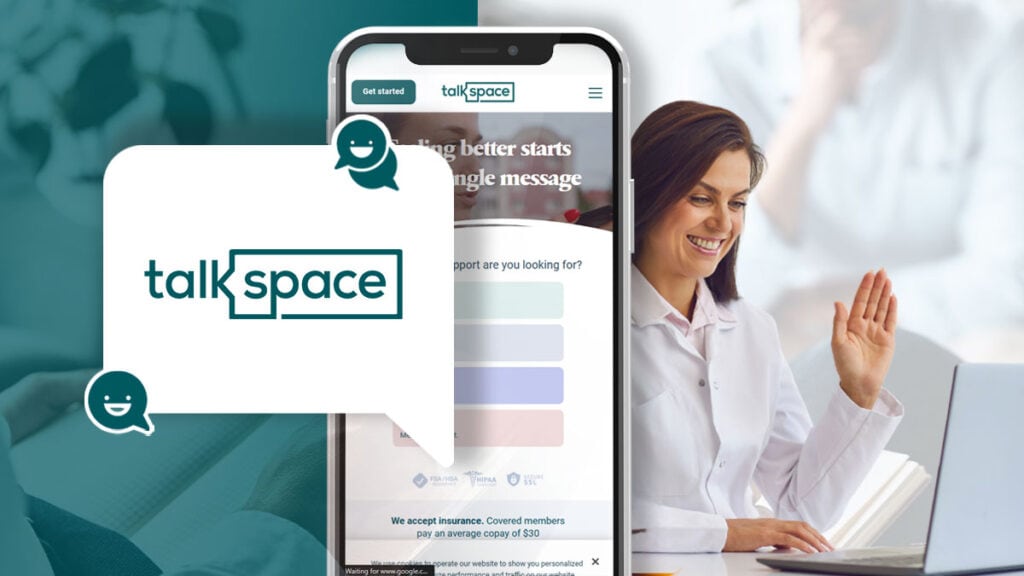
Talkspace was co-founded in 2012 by Oren and Roni Frank. After personally experiencing the benefits of couples therapy in their own marriage, the couple started the company to make it more accessible to others.
We chose Talkspace for its extensive network of therapists and psychiatric providers, who specialize in over 150 different conditions and treatment approaches.
Talkspace’s wide network allows it to offer flexible plans tailored to your specific needs and budget. These include specialized therapy for individuals, teens, couples, older adults, and military personnel. You can also access psychiatry services for prescriptions and medication management.
>>Experience the best online therapy with Talkspace
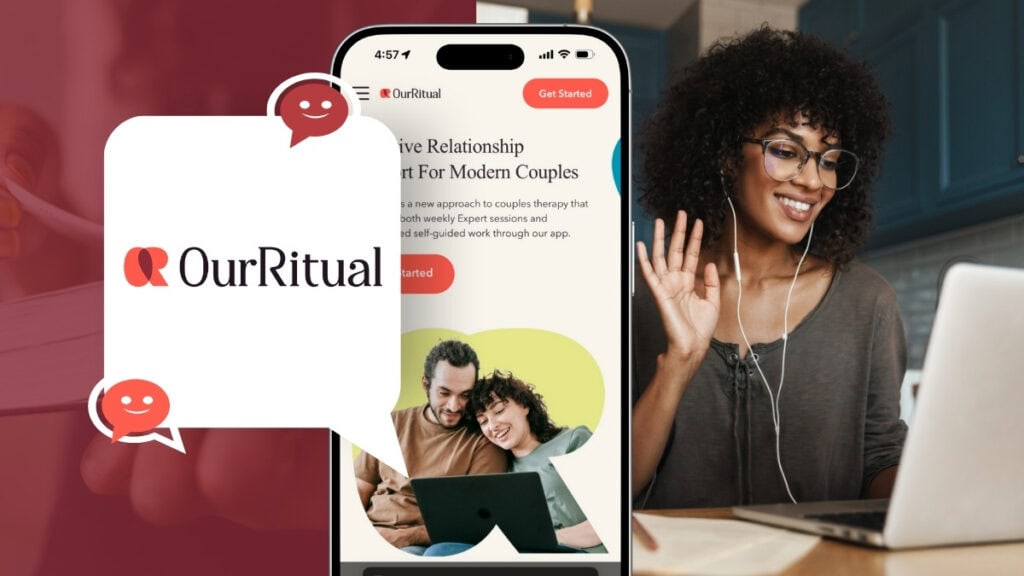
David Pruwer, Nir Shtern, and Gilad Meir started OurRitual (formerly Hey Ritual) in 2021, aiming to help couples confidently handle the everyday challenges and changes in their relationships.
OurRitual takes a fresh approach to couples therapy, blending weekly expert sessions with personalized, self-guided work in the app. You get matched with a licensed professional for sessions that can be as short as 20 to 40 minutes, which you can attend together or separately.
Your weekly sessions are paired with science-backed digital exercises you can do on your own time. OurRitual supports all kinds of relationships, including parents, long-distance partners, LGBTQ, and military couples, and even individuals.
>>Get started with OurRitual here
Online therapy, also known as e-therapy or teletherapy, is a convenient way to receive mental health counseling and support over the internet.
Instead of meeting a therapist in person, you connect with a licensed professional from the comfort of your own home, using a computer, tablet, or smartphone. This approach makes therapy more accessible and flexible, especially for those with busy schedules, limited mobility, or who live in remote areas.
Yes, online therapy has been shown to be just as effective as in-person therapy for many common mental health issues like anxiety, depression, and PTSD. Research indicates that the outcomes are very similar, and for some people, online therapy can even be more effective because it’s more convenient, accessible, and easier to stick with.
However, it’s important to note that for certain severe mental health conditions, such as schizophrenia and bipolar disorders, there is currently insufficient evidence to determine if online therapy is a viable or equivalent treatment option [1].
The key to its success, just like traditional therapy, is finding a qualified professional you connect with and actively engaging in the process.
Online therapy works by using technology to create a secure and private space for communication. You can connect with your therapist through various methods like live video calls (similar to a video chat), phone calls, unlimited text messaging, or live chat sessions.
The flexibility allows you to choose the style of communication that best fits your needs, making it easier to open up and get the support you need on your terms.
The suitable format to get the best online therapy session depends on your preference and comfort level. Some experts suggest that video therapy is the most similar to in-person therapy, as it allows you to see and read the therapist’s body language and facial expressions.
However, a few people may prefer phone or chat therapy, as they may feel less anxious or more expressive without being seen.
Each format has its advantages and disadvantages:
>>Find a suitable therapist on Online-Therapy.com
Online therapy offers many benefits, but it also has some drawbacks. Here are some of the pros and cons to consider:
We looked at many online therapy options and picked the best ones based on a few key things that matter most—trust, what they offer, how much they cost, and how easy they are to get help from.
We checked if people trust the company. This included looking at online reviews, expert opinions, and how long they’ve been around. If a lot of people had good things to say and the brand seemed reliable, it made our list.
Some services offered video calls, chat therapy, or even messaging with a counselor anytime. We picked platforms that had the best online counseling programs with special tools to make mental health support more flexible and convenient for different needs.
We looked at how much the services cost and whether they were worth the money. Some offer budget-friendly plans or free trials, while others are pricier but come with extra perks. We included a mix to fit different budgets.
Good help when you need it makes a big difference. We made sure the services had friendly and responsive support teams to answer questions or help you if anything goes wrong.
>>Join Online-Therapy.com here
Online therapy costs can vary depending on the type of care you need and what your employer, insurance, or health plan covers.
Some of the best online counseling platforms charge $60 to $90 per week for unlimited text messaging and one video session per month. Others charge $70 to $300 per session for pay-as-you-go video sessions.
The following factors can influence the final cost of online therapy:
Online therapy is not usually free, but here are some ways to access free or low-cost mental health services online.
More and more insurance providers are covering online therapy, especially in light of the COVID-19 pandemic. However, the coverage of online therapy depends on your specific insurance provider and plan, as well as the online therapy platform you choose. This is why many people are now searching for the best online therapy that takes insurance.
Some online therapy platforms accept insurance and may be covered by their plan. Others do not accept insurance, but users may be able to submit their bills to their insurer for reimbursement, depending on their plan. Patients may also need a diagnosis in order to use their insurance.
To find out if your insurance covers online therapy, you can:
Medicare Part B covers certain telehealth services, including online therapy, for all Medicare members. While many temporary telehealth policies have expired, coverage for behavioral and mental health services delivered via telehealth has been made permanent. This means you can continue to receive therapy from your home without geographic restrictions.
As for the costs, you will need to pay your annual deductible ($257 in 2025) and 20% of the Medicare-approved cost for your therapist’s services. This cost-sharing is similar to in-person visits. If you have a Medicare Advantage plan, your coverage and out-of-pocket costs may differ, so it is always best to check your plan details.
Yes, Medicaid does cover online therapy, but with some important conditions. Since Medicaid is a joint federal and state program, the specific coverage and rules can vary significantly depending on the state you live in.
All states now offer some form of telehealth coverage, but the details—like what services are covered, what types of professionals you can see, and whether you can have a session from home—differ. To be certain, it is always best to check directly with your state’s Medicaid program or your specific health plan.
>>Join Online-Therapy.com here
Online therapy is a great option for people who want to improve their mental health and well-being in a convenient, accessible, and affordable way. It may be especially beneficial for people who:
Online counseling may not be the best choice for people who:
There are many online therapy platforms available, but not all of them may meet your needs and preferences. To find the best online therapy platform for you, consider the following factors:
>>Join Online-Therapy.com here
One of the most important things to look for in an online therapy platform is whether the site’s therapists are licensed and qualified to provide mental health counseling.
Licensed therapists have completed a master’s or doctoral degree in psychology, counseling, social work, or a related field and have passed a state licensing exam. They also have to follow ethical codes and professional standards of their respective fields.
Some online therapy platforms may use terms like “therapist” or “counselor” loosely and may not have licensed professionals on their team. This can be misleading and potentially harmful for clients who expect quality and evidence-based care.
To avoid this, always check the credentials of the online therapy provider on the site and make sure they are licensed in your state.
>>Experience the best online counseling with Online-Therapy.com
To get the most out of your online therapy sessions, here are some tips for patients to prepare:
Online therapy is regulated by different laws and agencies at the federal and state levels. Some of the main regulations that apply to online therapy are:
>>Join Online-Therapy.com here
If you have a complaint or concern about your online therapy experience, you have several options to file a complaint and seek resolution.
Here, we share a collection of online therapy reviews from customers, highlighting both positive and negative feedback to provide a balanced and comprehensive perspective.
On Trustpilot, Janet Guerke highly recommended Online-Therapy.com, praising its user-friendly website and helpful worksheets for identifying negative thought patterns [2].
However, another user, Laura, while also finding her therapist “brilliant,” noted a key drawback: she had to continue paying for the subscription service even when her therapist was on holiday [3].
On Trustpilot, Arianna Michelle called it “the best decision I made,” praising her incredible therapist who helped her more in a few months than a previous therapist had in 4 years [4].
Conversely, another customer had a frustrating experience when they were assigned a male therapist despite requesting a female [5].
Sandra praised the service in her Trustpilot review, calling the process of finding a therapist “incredibly easy” with reliable, flexible sessions for her son [6].
But Bec Hall reported that the therapist missed a majority of sessions, resulting in her daughter only having one out of 4 sessions for the month [7].
On ReGain’s Trustpilot page, Lizza Reed praised the service for its user-friendly interface, ease of scheduling, and the ability to easily switch therapists [8].
Meanwhile, Brian Ubell had a frustrating experience with customer service, stating he received an unhelpful AI bot answer [9].
Nicole noted on Trustpilot that while Calmerry’s professionals were helpful, app notification delays and time zone differences hindered her experience [10].
In contrast, Keri D. found her therapist’s daily responses too general, but had an overall good experience [11].
On Trustpilot, Shayla Trader praised Talkspace, feeling grateful for her experience and an instant connection with her therapist. Another customer also found the help and availability insightful, but noted that the audio quality could be better [12] [13].
On the OurRitual Trustpilot page, Laura J. praised the service for being “extremely helpful” and convenient, loving that she could schedule sessions anytime, from anywhere [14].
However, Jake Lewis called the platform an “absolute scam,” complaining that it was difficult to book counseling [15].
>>Join Online-Therapy.com here
We answer the most common questions people have about the best online therapy platforms and more.
Many platforms offer individual and couples counseling, with common and highly effective methods like Cognitive Behavioral Therapy (CBT) and Dialectical Behavioral Therapy (DBT) being widely used. You can also find specialized support for issues like anxiety, depression, trauma, and even grief counseling.
While the terms are often used interchangeably, there’s a subtle difference between therapy and counseling. Counseling is typically short-term and focuses on a specific, current problem, such as coping with a life change, a recent loss, or a difficult relationship. Therapy, on the other hand, is a more long-term and in-depth process that aims to explore the root causes of issues.
Platform options for choosing a therapist vary. Some use a matching system to pair you with a therapist, while others, like directories, let you browse and select one yourself. Most services, however, allow you to switch therapists if it’s not a good fit.
When using online therapy, it is important to consider privacy. Ensure the platform is HIPAA-compliant, encrypts data, and has a clear privacy policy. This is especially crucial for sensitive cases like teen counseling, where the involvement of a social worker or other professionals might be necessary.
Online or virtual therapy is a convenient and effective way to improve one’s mental health and well-being, all without the need to travel to an in-person appointment at a medical center. It can help people cope with various issues, such as anxiety, depression, stress, and more.
However, finding the best online therapy apps or platforms can be challenging, as there are many factors to consider.
To make it easier, our review concluded that the best online counseling platforms are the likes of Online-Therapy.com, Betterhelp, and TeenCounseling.com.
Regardless of which service you choose, online therapy can be a great source of support and guidance for anyone who needs it.
No one is alone, and help is always available.
>>Join Online-Therapy.com here
Reach out to us via form or email and we'll be happy to get back to you!
Contact Us